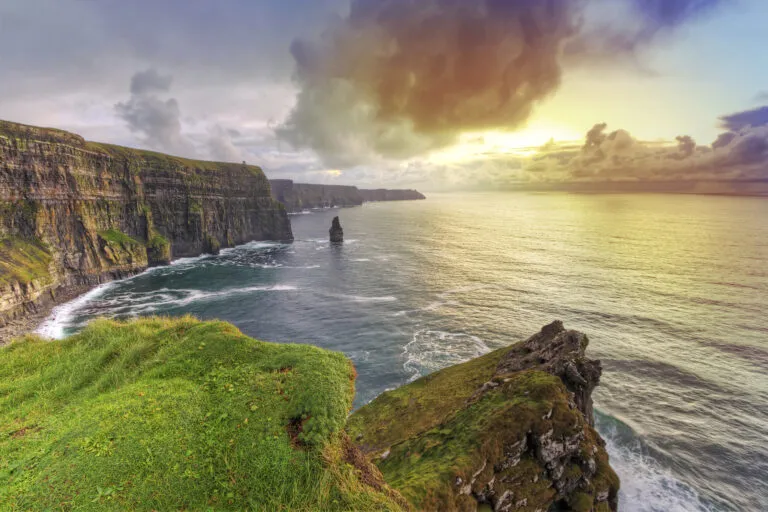Last week on vacation I went to one of my favorite places, Alamitos Bay in Long Beach, the city near Los Angeles where I grew up. The bay probably wouldn’t make most people’s favorite-places-on-earth list. It’s an inlet from the Pacific Ocean with a few small man-made islands, some beaches and pricey homes that mostly demonstrate how seldom great wealth is accompanied by great taste. There are no waves and sometimes the city closes the beaches because storm-water runoff fills the bay with contaminants.
Still, I love it, mostly because it holds good memories. I was on a rowing team in high school and all of our practices were in Alamitos Bay. I remember slipping out into the still, grey water at 5:30 a.m., the only sound the rhythm of oars slicing into the glassy surface.
Later, while home for the summer in graduate school, I swam in the bay, long, leisurely swims past beaches, yacht marinas, sailing students trying in vain to control their sabots, windsurfers, kayakers and other swimmers like me, all of us delighted to be in an expanse of sparkling water under the blue southern California sky, floating, untethered, free. It felt like stolen time, like sneaking away from the workaday world into a watery region that, though crowded on summer days, nevertheless seemed blessedly solitary.
So of course while visiting my family in Long Beach this summer I had to take my daughter Frances to the bay. Happily, she seemed to love it just as much as I always have. She’s two and a half and the morning we went she fell instantly to scooping sand into her bucket, wading into the warm water, making lumpy castles and splashing my mom and me for all she was worth.
I was delighted at her delight. But a strange thing happened as I waded into the water with Frances. Inwardly I found myself becoming deeply depressed. At first I wasn’t sure why. Then, as I watched a group of laughing young people dive into the water for a quick swim out to a buoy, I realized what was wrong. I felt like I didn’t belong.
It had been years since I’d swum in the bay. Decisive years. Since my last plunge into the bay’s blue water I’d gotten married, moved away from California, started a family of my own and, in some way I couldn’t quite put my finger on, changed.
I’d stopped being a person who swims in open water. I spend most of my life indoors now, the curse of a New York address. The pool where I swim in Manhattan is enclosed—and built atop a sewage plant. Floating, free, solitary, those words don’t describe my life anymore. I’m actually glad for that, since as a young single person I was selfish and self-focused, and I count among God’s greatest gifts the lessons in love and giving that come with marriage and parenthood.
Still, love of the outdoors is a gift too, and a vital one, as is a deep connection to the place you were raised. Those kinds of love, free from choice and self-interest, make more of the people who feel them. Certainly they made more of me.
Or at least I thought they did. How disturbed I was to discover the seeming loss of my old connection to Alamitos Bay. Is time that destructive, I wondered? Had the gift of this place, a gift I’d assumed came from God, been rescinded? Or had I somehow rescinded myself, closed off some part of myself that once was happy and easy in places like this?
Those questions shadowed me all that day. I couldn’t shake them. So the next morning I drove to the bay in my swimsuit. It was a warm day, warm sun softened by breezes off the ocean. I parked, walked a block or two and stepped onto the sand near the Second Street bridge, where my name, along with the names of my other rowing teammates, is still written on one of the pilings, assuming the tides haven’t washed it away.
I hesitated. The water’s always so cold jumping in. But then I ran forward and leaped. The water was cold! I surfaced and began swimming past some buoys marking off a kids’ play area. I went faster, finding a rhythm. With each turn of my head to breathe I saw familiar landmarks—familiar now that I was where I had always seen them before, in the middle of the bay, in the water.
There was the big house on Naples Island we always called Dogbark because a giant dog invariably ran right to the end of his tether to bark at us as our boat rowed by. There was the library where I used to check out books, with its floor-to-ceiling windows looking out on blue water and bobbing yachts. There was the promenade on Naples, just down a walkway from an ornate fountain, where I sometimes walked on warm evenings when the light lingers and lingers.
I swam on past marinas. I waited while erratic sabots tacked by. I kept a lookout for kayaks. Soon I was nearly a mile down the bay, near the jetty that points the way out to open ocean. I stopped to rest before turning around for the return swim. Suspended in the cool water, I moved my arms and legs lazily, watching kids Frances’ age potter about on the distant sand.
I smiled. I laughed. I felt untethered, floating, free and solitary. And I knew with absolute certainty that my fears about gifts from God had been, as always, wrong. No gift from God ever goes away. No love, whether for a person or a place, is ever wasted. People change but only at the surface. The fault lies in forgetting that.
Happy with such thoughts, I plunged my arms in and swam back the way I had come.
Jim Hinch is a senior editor at GUIDEPOSTS. Reach him at jhinch@guideposts.org.




